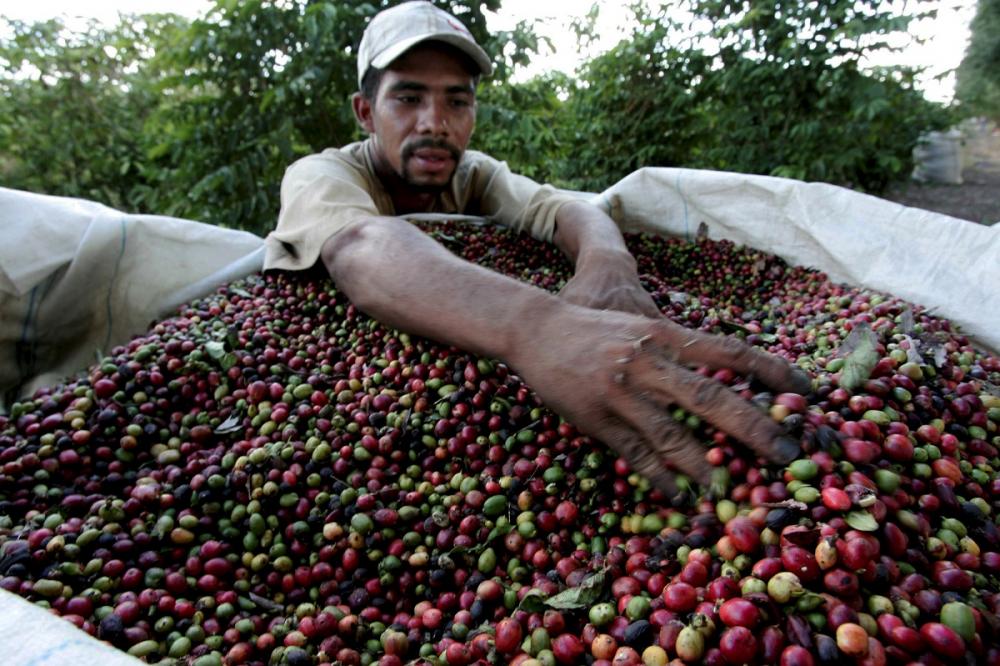Each session highlighted the technical assistance provided by the program aimed at improving the resilience and sustainability of coffee production in Central America. Additionally, they underscored the motivation of farmers to implement technologies and sustainable, diversified production models on their farms.

San Salvador, 7 June 2021 (IICA). The Inter-American Institute for Cooperation on Agriculture (IICA), through the Central American Program for Integrated Coffee Rust Management (PROCAGICA), held four virtual sessions with representatives of the initiative’s more than 7,000 beneficiaries in Honduras, Nicaragua, Guatemala, and El Salvador to share their expectations and lessons learned during implementation.
Each session highlighted the technical assistance provided by the program aimed at improving the resilience and sustainability of coffee production in Central America. Additionally, they underscored the motivation of farmers to implement technologies and sustainable, diversified production models on their farms, following the technical recommendations of PROCAGICA, with a view to improving the productivity, quality, and competitiveness of their coffee farms.
Farmer associations have also received support intended to strengthen their organization.
“PROCAGICA has helped us tremendously”, commented Elvia María Monzón del Valle, a coffee farmer from Guatemala and manager of the Rancho Viejo Cooperative.
“We’ve received technical assistance and they’ve been by our side throughout our journey to improving our coffee. We’ve also managed to renovate the majority of our farms and they’ve provided organic fertilizers and fungicides, as well as the necessary support for our roaster, which has helped us elevate our production, productivity, and competitiveness”, said Monzón, who was recognized this week by IICA as a #LeaderofRurality.
Ana Arely Ortez de Ramos, from Jucuapense Cooperative in Jucuapa, in the department of Usulután, El Salvador, tells of a similar learning experience.
“PROCAGICA has provided technical assistance and training on different crop techniques, for example the progress we’ve made as a cooperative by diversifying our farms with cacao. Currently, we are making our own chocolate bars that we sell locally and have been well accepted by the market”, she explained.
Álvaro Lemus, General Manager of APOLO Association in Guatemala, explained how his cooperative has increased productivity and the sustainable development of the community of Olopa, Chiquimula. “With the support of PROCAGICA, in addition to improving the livelihood of farmers and their families, we’ve managed to innovate”.
“With technical assistance and the capitalization fund that was created based on the revolving fund provided by the initiative, we’ve guaranteed the continuation of good practices. We have optimal equipment and we’re going through the whole process—from selecting the bean, to roasting, packaging, and selling it on the domestic market”, said Lemus.
Ricardo León Guzmán from Tizamarté Integrated Rural Development Association (ACODRIT) in Guatemala, emphasized that more and more farmers are drawing up business plans.
“It’s no longer about planting and then seeing what to do about production. With the support of PROCAGICA, the cooperative has created an investment fund that grants small loans to members to meet the needs of their farms and enable good production, in that way guaranteeing a good return on the investment”, he said.
“For example, we have producers who are moving toward organic production, which is an excellent business opportunity. The crop is virtually free from conventional chemical substances, which reduces the cost of external inputs and increases the development of good agricultural practices, which they’ve learned through the program”, expressed Guzmán.
Overall, the program’s beneficiaries highlighted the support in strengthening their capacities, which has assisted them to improve practices for managing, renovating, and diversifying their coffee farms, with a focus on environmental sustainability, as well as processing, adding value, and strengthening farmer organizations and easy-access finance mechanisms, among other forms of support.
The Coffee Dialogues are intended to serve as a networking platform for producers in Central America to share success stories that can be replicated and, in turn, underscore the work done by the programs’ beneficiaries for the benefit and sustainability of coffee farming in the region.
The Central American Program for Integrated Coffee Rust Management (PROCAGICA) is executed by the Inter-American Institute for Cooperation on Agriculture (IICA) with the support of the European Union. The program strives to improve the livelihood of the rural population in the coffee-growing regions of Central America.
More information:
Institutional Communication Division.
comunicacion.institucional@iica.int











